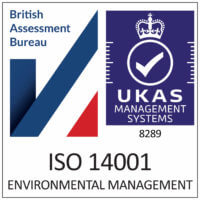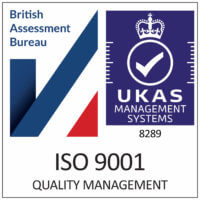The Impact of Peat-Free All-Purpose Compost on Soil Water Retention
Oct 5th 2023
In this article, we’ll take a closer look at the fascinating impact of peat-free all-purpose compost on soil water retention. Have you ever wondered how switching to peat-free compost could potentially change the way your plants retain water? Well, you’re about to find out! We’ll explore the benefits and implications of this eco-friendly alternative, highlighting the ways in which it can enhance your gardening experience while also benefiting the environment. Get ready to learn how peat-free all-purpose compost can transform your soil’s water retention capabilities and nurture healthier, more vibrant plants.
1. Definition of Peat and Peat-Free All-Purpose Compost
1.1 Definition of peat
Peat refers to partially decomposed organic matter that is found in wetland ecosystems. It is formed when dead plant material accumulates over thousands of years and undergoes slow decay due to the lack of oxygen. Peat is commonly used in gardening and horticulture due to its ability to retain moisture and nutrients, making it an ideal component for various types of compost.
1.2 Definition of peat-free all-purpose compost
Peat-free all-purpose compost, on the other hand, is a type of compost that does not contain any peat. It is made using alternative materials. This type of compost is designed to provide similar benefits to peat-based compost, but with a reduced environmental impact.
2. Importance of Soil Water Retention
2.1 Understanding soil water retention
Soil water retention refers to the ability of soil to retain water and provide it to plant roots for uptake. It is a vital characteristic of soil that determines its overall quality and ability to support plant growth. Soil with good water retention capacity ensures that plants have access to a steady supply of moisture, even during dry periods. This is crucial for the survival and productivity of plants in both natural and cultivated environments.
2.2 Significance of soil water retention for plant growth
Maintaining adequate soil water content is essential for plant growth and development. When soil has good water retention properties, it ensures that plants receive a consistent supply of water, essential nutrients, and dissolved minerals necessary for their metabolic processes. Proper soil water retention promotes healthy root growth, enables efficient nutrient uptake, and aids in the regulation of plant water balance. It also helps plants withstand drought conditions by reducing water stress and minimizing the risk of wilting or damage.
3. Comparison of Peat-Free All-Purpose Compost and Peat-Based Compost
3.1 Water retention properties of peat-based compost
Peat-based compost is renowned for its exceptional water retention capacity. Due to the porous nature of peat, it has large internal surface areas that enable it to hold significant amounts of water. This property ensures that plants have access to moisture even in drier conditions, reducing the frequency of watering required.
3.2 Water retention properties of peat-free all-purpose compost
While peat-free all-purpose compost may not have the exact water retention capabilities of peat-based compost, it is designed to provide similar benefits.
3.3 Factors influencing the water retention capabilities of both compost types
The water retention capabilities of both peat-based and peat-free all-purpose compost are influenced by various factors. The particle size and structure of the compost materials play a significant role in determining their water holding capacity. Finer particles tend to have greater water retention abilities compared to coarser ones. Additionally, the specific blend of organic materials used in the compost can influence its water retention properties. Factors such as the compost’s porosity, organic matter content, and the presence of additional additives can also impact water retention.
4. Research Studies on the Impact of Peat-Free All-Purpose Compost on Soil Water Retention
4.1 Overview of research studies
Numerous research studies have been conducted to investigate the impact of peat-free all-purpose compost on soil water retention. These studies aim to evaluate the effectiveness of alternative compost materials in providing adequate moisture management for plant growth while reducing reliance on peat.
4.2 Experimental methodologies used
Research studies employ various experimental methodologies, including laboratory tests, greenhouse trials, and field experiments, to assess the water retention capabilities of peat-free all-purpose compost. These methods involve measuring and comparing the moisture levels of soils amended with different compost blends under controlled conditions or in real-world settings. Researchers analyze parameters such as water infiltration rates, soil moisture content, and plant performance to evaluate the effectiveness of the compost in retaining moisture.
4.3 Findings and conclusions
The findings of research studies on peat-free all-purpose compost’s impact on soil water retention have generally been positive. Results indicate that carefully formulated peat-free compost blends can provide comparable water retention capabilities to traditional peat-based compost. These studies emphasize that the choice of compost materials, their proportions, and the management practices employed are crucial factors in optimizing water retention. The research concludes that utilizing peat-free all-purpose compost can be an effective and sustainable alternative for maintaining soil moisture levels.
5. Benefits of Peat-Free All-Purpose Compost for Soil Water Retention
5.1 Conservation of water resources
One of the significant benefits of using peat-free all-purpose compost is its contribution to water resource conservation. By retaining moisture more efficiently, this compost reduces the need for frequent watering, thereby conserving water. This is particularly important in regions experiencing water scarcity or facing drought conditions, where water conservation is crucial for sustainable gardening and agriculture.
5.2 Reduction in plant water requirements
The use of peat-free all-purpose compost can substantially reduce plant water requirements. The compost’s ability to retain moisture and gradually release it to plant roots ensures a more consistent and steady supply of water. As a result, plants irrigated with this compost require less frequent watering, allowing for the development of stronger and more resilient root systems. Reduced water requirements also have financial benefits, as gardeners and farmers can save on water bills and conserve this valuable resource.
5.3 Improvement of soil structure and moisture-holding capacity
Peat-free all-purpose compost not only enhances water retention, but it also improves the overall structure and moisture-holding capacity of soils. The organic matter in the compost promotes soil aggregation, creating space for air circulation and root development. This improved soil structure increases the soil’s ability to hold moisture, preventing excessive drainage and reducing the risk of water loss through runoff. Additionally, the organic matter in the compost gradually breaks down, further enhancing soil fertility and moisture retention over time.
6. Considerations for Using Peat-Free All-Purpose Compost
6.1 Specific plant requirements
Before using peat-free all-purpose compost, it is essential to consider the specific requirements of the plants you intend to grow. While peat-free compost generally provides adequate water retention, certain plants may have specialized water needs. For example, water-sensitive plants, such as succulents or cacti, may require a different type of compost or specific watering techniques. It is crucial to research the water requirements of your intended plants and choose a compost blend that aligns with their needs.
6.2 Environmental sustainability
One of the primary reasons for choosing peat-free all-purpose compost is its positive environmental impact. By opting for composts that do not contain peat, you support the preservation of peatland ecosystems, which are valuable carbon sinks and habitats for unique plant and animal species. Peat-free composts also reduce greenhouse gas emissions associated with peat extraction and contribute to a more sustainable and regenerative gardening practice.
7. Practical Applications and Recommendations
7.1 Application techniques for optimizing water retention
To maximize the water retention capabilities of peat-free all-purpose compost, proper application techniques are essential. Ensure that the compost is thoroughly mixed into the existing soil, improving its overall water-holding capacity. Additionally, consider using organic mulches, such as wood chips, on the soil surface to further conserve moisture. Mulching helps reduce evaporation, maintain soil temperature, and suppress weeds, ultimately enhancing the effectiveness of the compost in retaining water.
7.2 Guiding principles for sustainable gardening practices
Incorporating peat-free all-purpose compost into your gardening practices aligns with broader principles of sustainability. Adopting sustainable gardening practices, such as proper irrigation techniques, water-wise plant choices, and habitat creation, can further enhance your garden’s resilience and minimize water consumption. Additionally, consider composting your organic waste at home to reduce waste generation and produce nutrient-rich compost for your garden.
8. Consumer Awareness and Advocacy
8.1 Educating consumers about peat-free alternatives
Promoting awareness among consumers about the benefits of peat-free all-purpose compost is essential for driving broader adoption. Educational initiatives can include informational campaigns, workshops, and online resources that highlight the environmental impacts of peat extraction and the advantages of using peat-free compost. Providing guidance on the selection and application of peat-free products can empower consumers to make sustainable choices for their gardening needs.
8.2 Promoting the adoption of peat-free all-purpose compost
Advocacy efforts can play a vital role in promoting the adoption of peat-free all-purpose compost at a larger scale. Engage with gardening associations, environmental organizations, and local government bodies to advocate for policies and initiatives that encourage the use of peat-free alternatives. Encourage retailers and suppliers to stock and promote peat-free compost options, increasing accessibility and consumer choice.
8.3 Collaboration with gardening organizations and suppliers
Collaboration between gardening organizations and suppliers is key in driving the transition to peat-free all-purpose compost. Encourage partnerships and knowledge-sharing initiatives that facilitate research and development of innovative composting materials and techniques. These collaborations can lead to the identification of new, sustainable alternatives and contribute to the continuous improvement of peat-free compost products.






